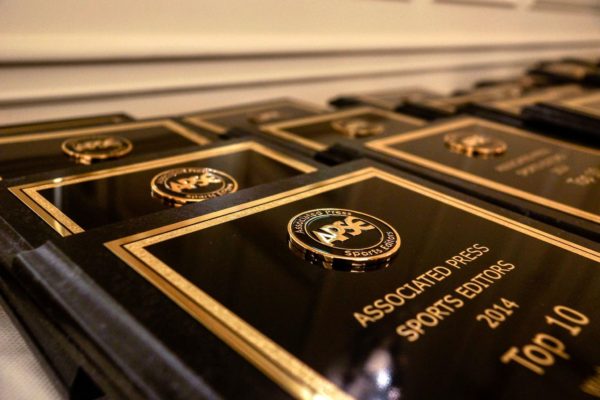Los Angeles Times Sports Editor Mike James was asked how ESPN.com’s launch in Los Angeles in December has impacted The Times so far. His answer:
We haven’t seen any significant change in our traffic since the site began operating. We lost our Lakers bloggers to them, but traffic on our Lakers blog actually increased about 12 percent in the two weeks after they moved to ESPN LA, and that included Christmas week, the lowest-traffic week of the year on the site. During that stretch, we manned the blog with a piecemeal group of staffers until we could sign on another blogger full time, which we’ve now done.
Of course, we take ESPN’s appearance in the market seriously; it is, after all, THE sports brand for fans around the country. But our belief is the depth of coverage that we can provide and the level of experience and talent that we have on staff are such that we’ll offer a more comprehensive report on the sports scene in L.A. than anyone.
Our mission has always been to be the final word on sports in Southern California, and it’s still our mission – whether it’s in print on or the website.
Of course, the thing we can’t match is the highlights of the NBA, NFL and MLB that ESPNLA has access to, but we’ve ramped up our video presentations, trying to highlight the people we have on staff to further demonstrate all they have to offer.
The bottom line is that we’re obviously watching what they do, and I’m sure they’re watching us. ESPN knows what it’s doing, so I have to assume they’ll continue to improve their product. We expect to do the same, though I must say that continual improvement of the site has been our goal all along and pre-dated ESPN’s move to L.A.
Other notes from the West:
AV Press
Antelope Valley Press columnist and sports writer Brian Golden, who earlier this year was inducted into the Hall of Fame for the Lancaster JetHawks minor league baseball team, won an internet vote conducted by the team to be immortalized as a bobblehead.
Golden, who last year marked 25 years covering sports in the Antelope Valley, will be one of 15 "Hangar Heroes" to be honored for their role in the 15 years that professional baseball has been played in the Valley. His bobblehead night is July 7.
Sacramento Bee
The Sacramento Bee ran an All-Decade Project during the month of December. Every Sunday during the month, we produced our All-Decade player and starting lineups for the A’s, Giants, 49ers, Raiders, Kings and high school football and boys and girls basketball. The 49ers piece even gained national note as our 49ers player of the decade, Terrell Owens, told our beat reporter he would be interested in finishing his career with the 49ers.
Salt Lake Tribune
Utah Jazz writer Ross Siler completed a several-month project exploring the plummet of 2004 first-round draft pick Kirk Snyder.
Snyder, taken out of Nevada ahead of such players as Josh Smith, J.R. Smith, Jameer Nelson, Kevin Martin, Anderson Varejao and Trevor Ariza, was an extraordinarily gifted athlete who also is apparently plagued by an undiagnosed mental disorder. The Jazz jettisoned Snyder after two years and he spent seasons in Houston and Minnesota before his career ended. He’s now facing 18 years in prison after being charged with aggravated burglary, felonious assault and misdemeanor assault. Read the story here.
The organization’s list of blogs grew with the launch of Aggieville, a blog about Utah State athletics by Tony Jones. Coupling the launch with an aggressive Twitter strategy, Aggieville catapulted among The Tribune’s Top 10 blogs within a week and frequently ranks among the top five, competing favorably with the Utah Jazz and University of Utah. (The paper’s BYU blog is by far and away its most popular).
Reporter Michael C. Lewis also completed a several-month project, examining what became of Utah’s multi-million dollar payout for playing in the Sugar Bowl last year and whether it was the boon to school coffers as widely assumed. Documents that Lewis obtained showed Utah actually needed the money just to keep pace in the hyper-competitive world of collegiate sports. Lewis found Utah increased spending on football salaries, travel and recruiting about 46 percent over the past four years, offsetting cuts and budget reallocations in other areas. Lewis also found the estimated football budget of $7.8 million for 2009-10 is about 30 percent higher than it was when the Utes won the Fiesta Bowl in the 2004-05 season. Read the story here.





